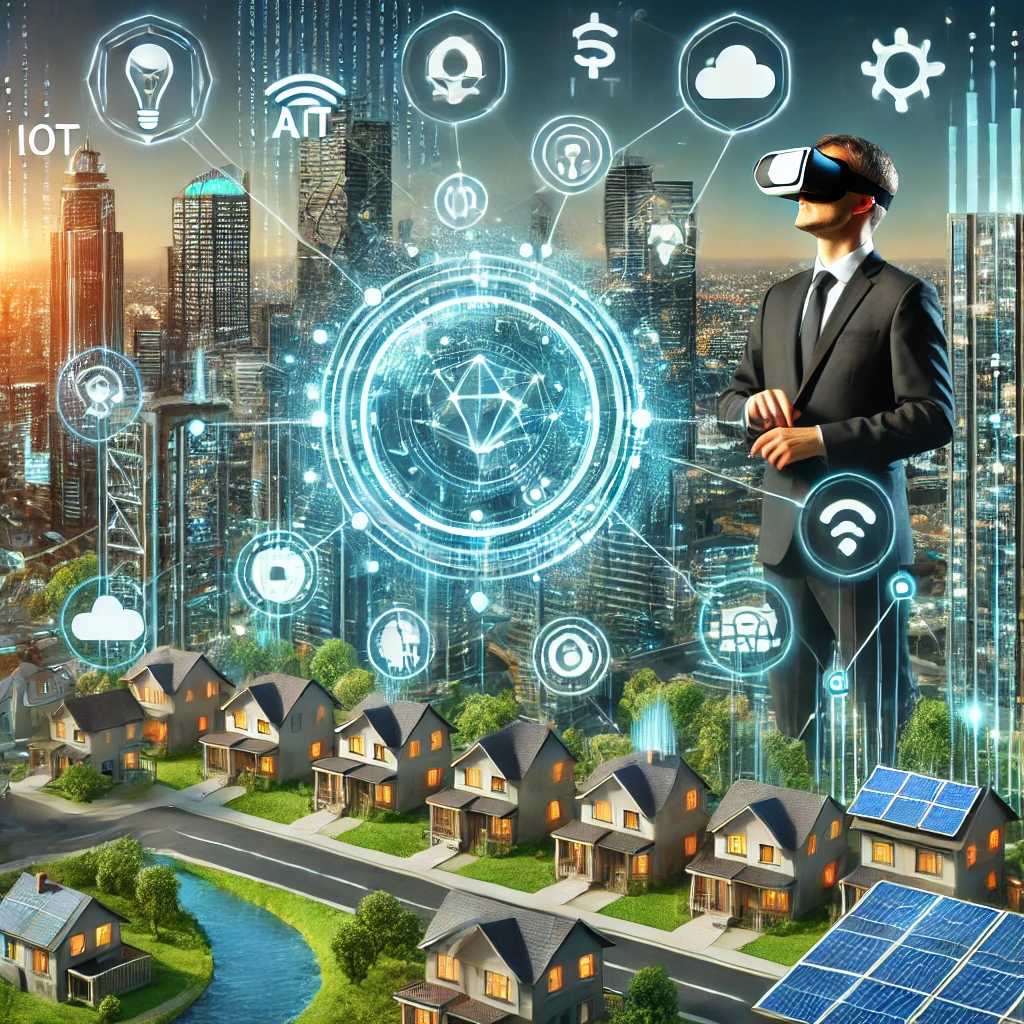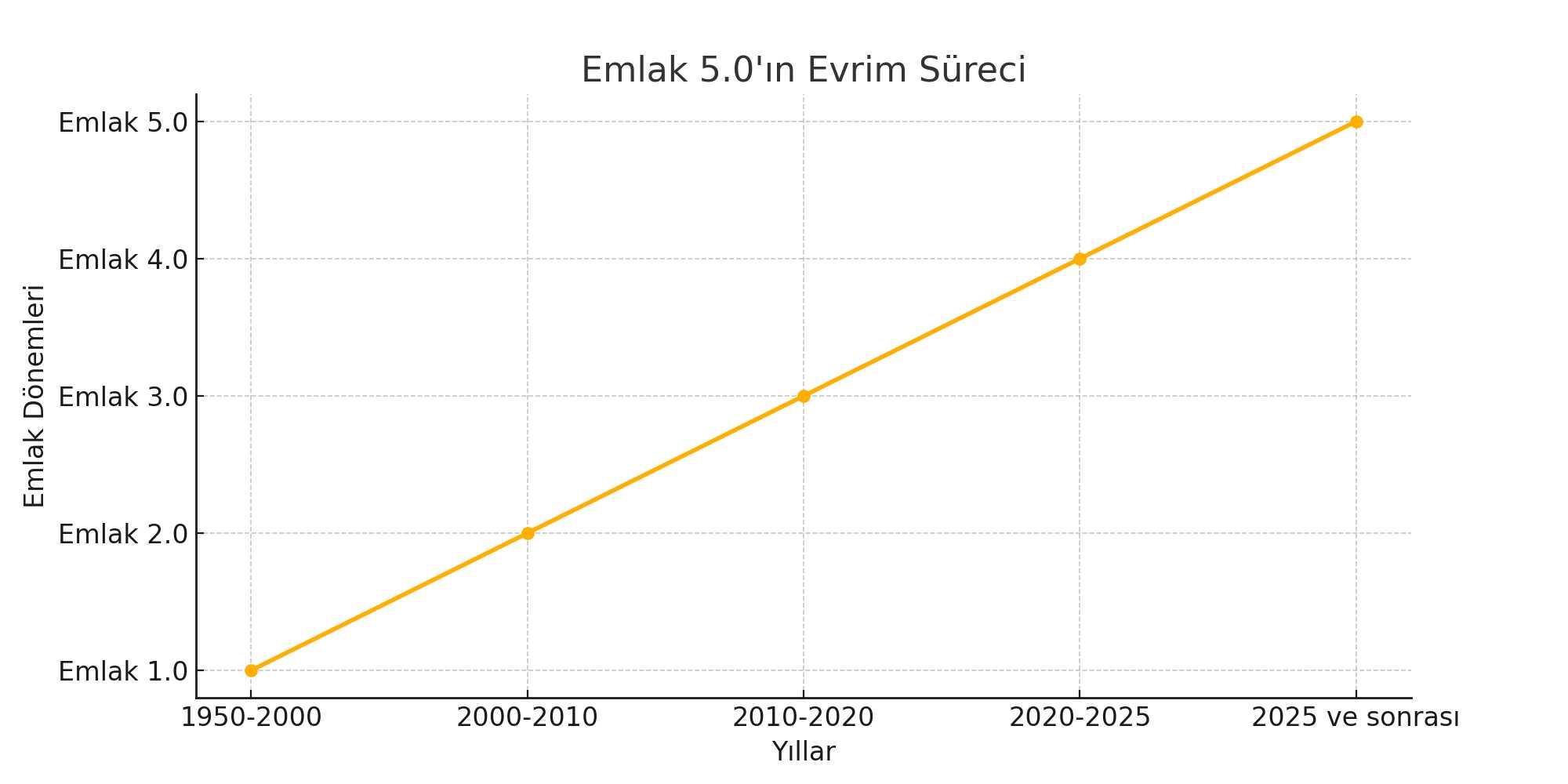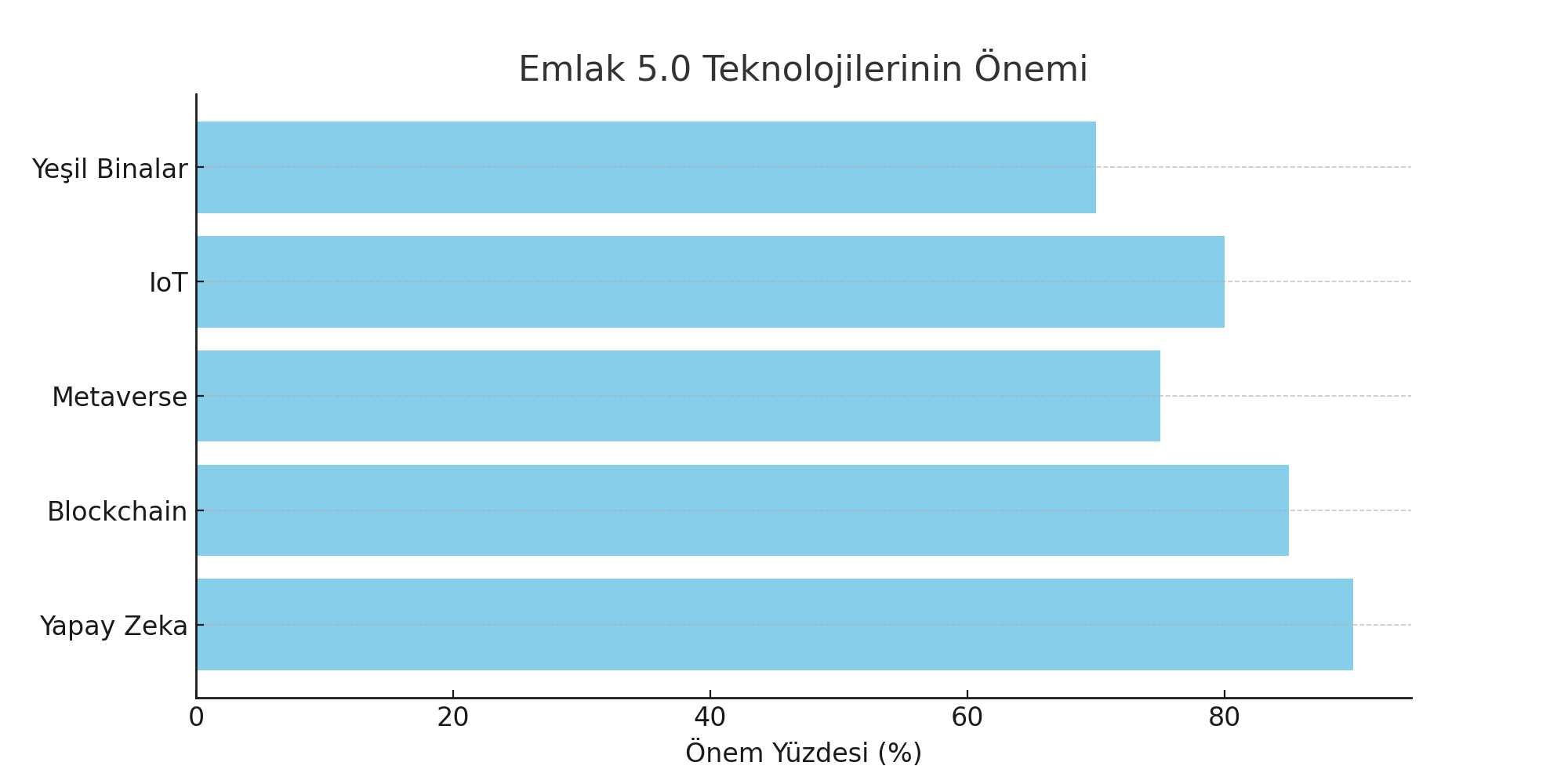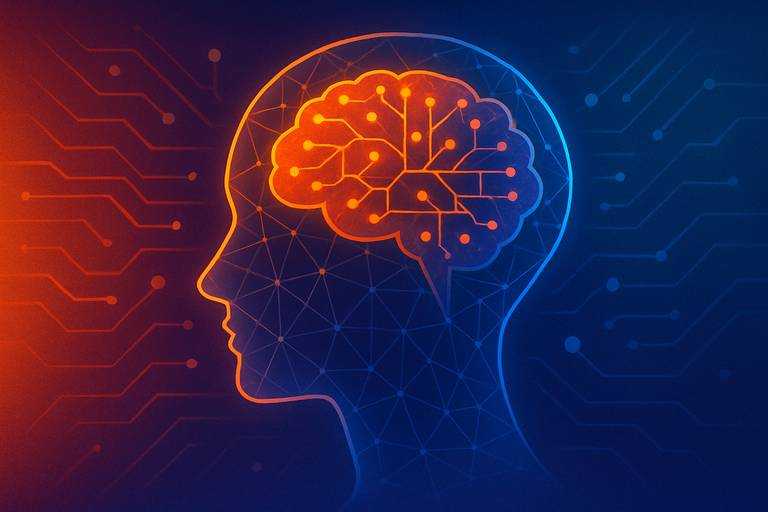Real Estate 5.0: Technology and Human-Oriented Transformation in the Real Estate Sector

The real estate industry has undergone major changes since the industrial revolution. Especially in the 21st century, transformation in the real estate sector has accelerated with digitalization, big data analytics and smart city concepts. In recent years, the effects of Industry 5.0 have also been reflected in the real estate sector. This article examines how it has revolutionized the industry by defining the concept of 'Real Estate 5.0'.
Real Estate from 1.0 to 5.0: The Evolution of the Sector
Technological Components of Real Estate 5.0
Artificial Intelligence and Big Data Analytics
Real estate price forecasts, customer analysis, and personalized recommendations.
Blockchain and Smart Contracts
Secure record keeping and fraud prevention in title deed transactions.
Metaverse and Virtual Reality (VR)
Virtual tours and 3D modeling in real estate investments.
Internet of Things (IoT) and Smart Cities
Smart building systems and environmentally friendly energy management.
Green Buildings and Sustainable Projects
Low carbon emission, energy-efficient buildings.

Economic and Social Impacts of Real Estate 5.0
While Real Estate 5.0 creates a great economic transformation in the sector, it also brings serious effects to social life. In this process, especially investors, real estate consultants and construction companies will have to adapt to new generation technologies.
Conclusion and Future Projection
Real Estate 5.0 aims to create a sustainable and efficient real estate ecosystem with technological innovations. In the coming years, it is expected that smart cities will become widespread, and blockchain and artificial intelligence will play a greater role in the sector. Companies that want to gain a competitive advantage in the real estate sector must adapt to this transformation.

Bibliography




